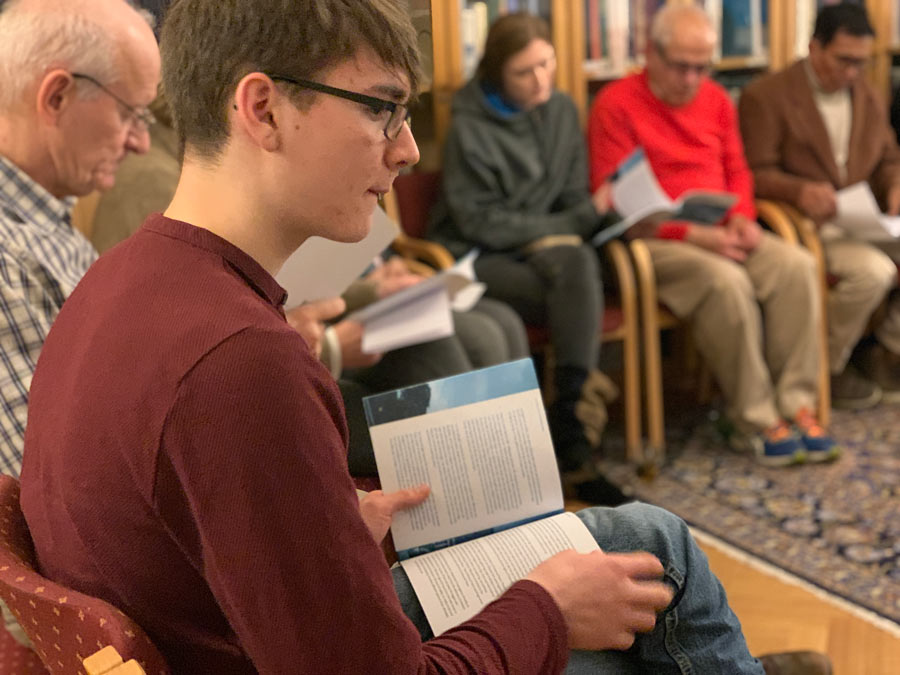The Tablet to The Hague, a seminal document penned by ‘Abdu’l-Bahá, serves as a profound testament to the Bahá’í philosophy regarding peace and unity among nations. This document emerged during a period of tumultuous global rivalry, where the seeds of conflict were being sown across various fronts. The fascination with this Tablet lies not merely in its historical context but also in its potent call for international cooperation and the establishment of enduring peace. As one delves into the intricacies of ‘Abdu’l-Bahá’s exhortation to The Hague, several pivotal themes arise, inviting contemplation and introspection.
The historical backdrop of ‘Abdu’l-Bahá’s advocacy for peace is indispensable for understanding the significance of the Tablet. Written in the early 20th century, the Tablet was addressed to the Peace Conference held in The Hague in 1913. At that time, the world was teetering on the precipice of the First World War, a conflict that would claim millions of lives and reshape the global order. ‘Abdu’l-Bahá’s voice emerged as a beacon of hope, urging humanity toward the rejection of militarism and the espousal of dialogue as a means to resolve disputes.
One of the most striking facets of the Tablet is ‘Abdu’l-Bahá’s unequivocal assertion that justice is the cornerstone of peace. He argued that without a firm foundation of equity and fairness, any attempt at establishing peace would be futile. The quest for justice transcends mere legalistic interpretations; it grapples with the moral imperatives that govern human interactions. In essence, true peace can only flourish in an environment where every individual and nation is treated with respect and dignity.
Moreover, the Tablet articulates a vision of a united world. ‘Abdu’l-Bahá emphasized that the disunity among nations is a primary catalyst for conflict. He called for the establishment of a world federation—an institution that would facilitate cooperation and collective action among diverse countries. This notion of a global synergism resonates deeply, especially as contemporary society grapples with issues like climate change, pandemics, and humanitarian crises. The solutions to these global challenges necessitate collaboration across borders, echoing ‘Abdu’l-Bahá’s prophetic insights.
In addition to justice and unity, another pivotal theme in the Tablet is the role of education in fostering an enduring peace. ‘Abdu’l-Bahá underscored that educating the masses—including women and marginalized communities—is imperative for cultivating a culture of peace. This highlights a crucial understanding: peace is not merely the absence of war, but rather an active process that requires the empowerment of individuals at all societal levels. The philosophies advocating for universal education and knowledge become imperative when reassessing the foundational elements of a peaceful society.
The spiritual dimension associated with ‘Abdu’l-Bahá’s call for peace cannot be overlooked. At the heart of the Tablet lies a profound understanding of human interconnectedness—a belief that all individuals are part of a greater whole. This intricate interdependence is framed within the context of the Bahá’í teachings, which posit that humanity is one family. The call for peace is, therefore, not just a political or social imperative, but a spiritual obligation. This intrinsic connection between spirituality and peace beckons deeper exploration, as it encourages individuals to transcend personal grievances for the greater good.
Furthermore, the Tablet invokes the concept of tragicomedy—the juxtaposition of human folly and nobility. ‘Abdu’l-Bahá, in a manner both eloquent and poignant, illustrates the paradoxical reality of human existence: capable of immense kindness, yet often ensnared by conflict. This duality is not only representative of individual behavior but also emblematic of national actions on the global stage. The tragedy of war and the comedy of peace intertwine, thus compelling societies toward introspection. It is through recognizing one’s flaws and striving toward virtue that can humanity hope to maintain peace.
One cannot ignore the implicit challenge that ‘Abdu’l-Bahá positioned before the global leaders of his time—and, by extension, the leaders of today. The call to action embedded within the Tablet resonates with modern governance’s need for visionary leadership. Contemporary society often laments the lack of moral and ethical fortitude among its leaders. Herein lies ‘Abdu’l-Bahá’s clarion call, serving as both a critique and an enlightenment. The responsibility of fostering peace lies not solely with political entities but also with each individual who partakes in the communal bond of society.
In an era characterized by rapid globalization, the insights gleaned from the Tablet to The Hague are immeasurably relevant. As nations become more intertwined, and as multifaceted issues arise, the philosophies articulated by ‘Abdu’l-Bahá continue to illuminate paths toward mutual understanding and goodwill. The imperative remains: for peace to flourish, it must be rooted in justice, catalyzed by education, and supported through collective action.
In conclusion, the Tablet to The Hague represents more than a historical document; it is a living embodiment of timeless principles that resonate across generations. ‘Abdu’l-Bahá’s clarion call for peace, unity, and justice compels us to reflect on our collective responsibilities and moral obligations. The fascination with ‘Abdu’l-Bahá’s teachings emerges not only from their theoretical profundity but also from their applicability in contemporary discourse, proving that his wisdom remains as relevant today as it was over a century ago.
